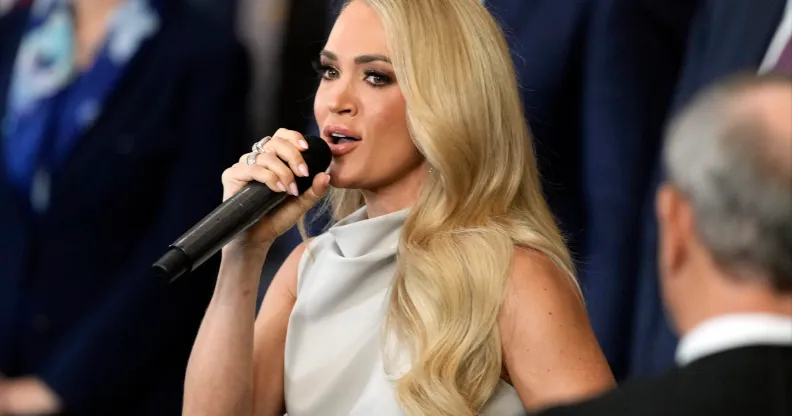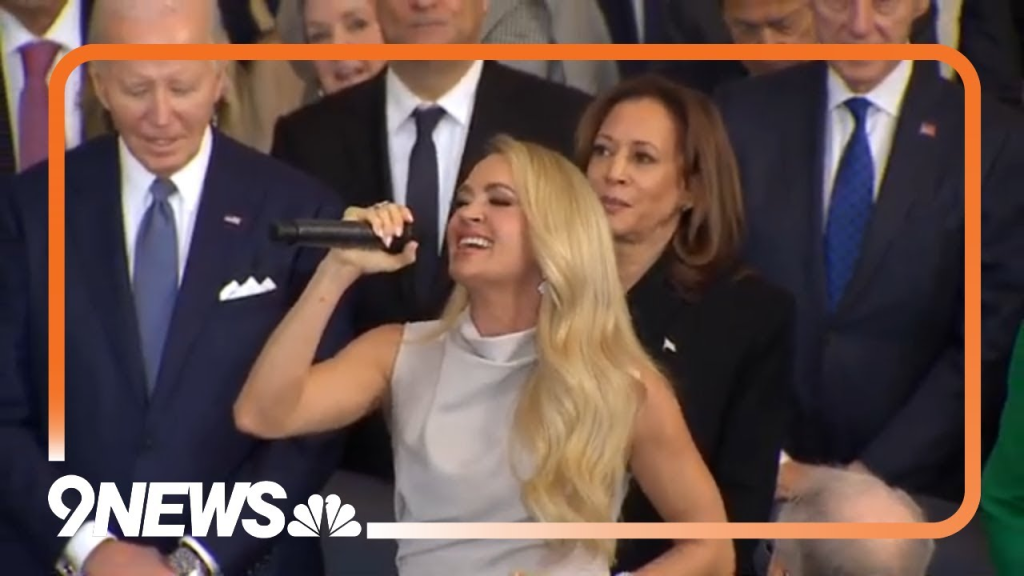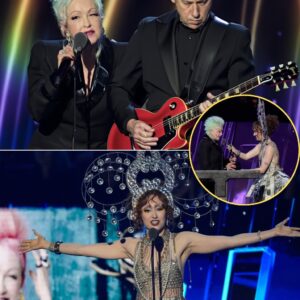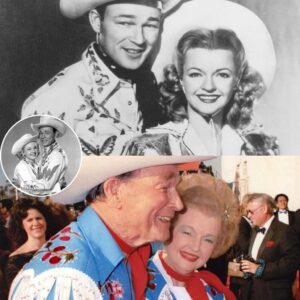In a music world where pop divas, hip-hop moguls, and rock icons all compete for the glittering crown of cultural relevance, Carrie Underwood has long held her place as the reigning superstar of modern country music. Since her rise to fame after winning American Idol in 2005, she’s sold millions of albums, earned Grammy Awards, and become a household name.

But now, in a surprising and eyebrow-raising moment of candor, Underwood has reportedly opened up about her frustrations with the industry, revealing that despite her success, she feels she is not “respected like Beyoncé.” Even more shockingly, she added that she wants to reinvent herself under a new persona: Crow Boy.
The revelation has sparked both amusement and debate across fan communities, as well as within the wider cultural landscape.
The Beyoncé Benchmark
Whenever the conversation turns to cultural dominance, Beyoncé’s name inevitably comes up. She has transcended pop stardom to become a symbol of artistry, empowerment, and sheer global influence. Her projects are not just albums; they’re cultural events.
Carrie Underwood, by contrast, has built her empire on chart-topping hits, soaring vocals, and powerhouse performances, especially within the country sphere. Yet she admits the comparison weighs heavily on her.
“People love my songs, but when Beyoncé breathes, it’s a movement,” Underwood is imagined to have sighed during a backstage conversation. “I win awards, but she wins history.”
This exaggerated contrast highlights a very real phenomenon in the music industry: the hierarchy of respect. While country music artists often enjoy immense popularity within the United States, pop stars like Beyoncé are elevated to near-mythical global icons. Underwood, with her characteristic sincerity, seems to be acknowledging the imbalance.
The Birth of Crow Boy
Perhaps the most unexpected twist in Underwood’s statement is her bold new persona: Crow Boy.
According to sources close to the singer, Crow Boy represents freedom, rebellion, and a kind of raw artistic reinvention. The crow, often symbolic of intelligence and transformation, becomes her chosen emblem. The “boy” element, meanwhile, signals a playful departure from her hyper-feminine country image.
“Carrie has always been known for her sparkly dresses and big ballads,” one insider noted. “But Crow Boy is about grit, edge, and a touch of chaos. Think leather jackets instead of rhinestones, dark eyeliner instead of glitter. She’s ready to scare the Grand Ole Opry a little.”
It’s not the first time artists have reinvented themselves. David Bowie had Ziggy Stardust, Beyoncé had Sasha Fierce, and now, Carrie wants Crow Boy.

Industry Reactions
Naturally, the entertainment world didn’t stay silent.
- Fans on social media reacted with a mixture of confusion and delight. One user posted: “If Carrie Underwood becomes Crow Boy, I’m buying front-row tickets to the first concert. Caw caw, queen!”
- Music critics, meanwhile, are divided. Some argue that Underwood doesn’t need a reinvention, while others see Crow Boy as a refreshing way to challenge expectations in a genre often accused of being too traditional.
- Country traditionalists are skeptical. “We don’t need any more theatrics in country music,” one radio DJ complained. “We need fiddles, not feathers.”
Still, if Carrie has proven anything, it’s her ability to turn criticism into momentum.
Carrie vs. Beyoncé: A False Competition?
It’s worth asking whether Underwood’s feelings reflect a real rivalry or simply an invented narrative. Beyoncé and Carrie Underwood are rarely in direct competition. They operate in different genres, with different audiences, and different cultural footprints.
But comparisons are inevitable. The music industry, much like the media that covers it, thrives on rivalry. Pop divas are stacked against one another, country stars are measured against Nashville legends, and everyone is judged against Beyoncé.
Some cultural commentators suggest that Underwood’s lament is less about Beyoncé personally and more about the industry’s value system. Respect, in this sense, is not only about talent but about the ability to transcend genre, race, geography, and tradition.
What Crow Boy Could Mean
The Crow Boy era, if it ever takes flight, could be fascinating. Here are some possibilities fans are already imagining:
- Music: A grittier sound blending rock, country, and maybe even hip-hop.
- Fashion: Gothic country chic, complete with feathers, leather, and unexpected silhouettes.
- Stage Persona: Dramatic performances that push the boundaries of her “girl-next-door” image.
- Message: A declaration of artistic independence from Nashville’s expectations.
If Beyoncé can release a surprise visual album that redefines pop culture, perhaps Carrie can introduce Crow Boy as a genre-bending experiment.
Respect in the Music Industry
Beyond the humor and spectacle of this revelation lies a serious question: how is respect measured in music?
- Commercial success? Carrie Underwood has plenty of that.
- Critical acclaim? She has her share of Grammys and accolades.
- Cultural influence? This is where Beyoncé towers above most.
Respect, then, is not simply about talent or achievement. It’s about narrative. Beyoncé has been positioned not just as an artist but as a cultural leader. Carrie Underwood, despite her incredible voice and undeniable star power, has not been afforded the same cultural narrative.
Crow Boy, in this sense, may be Carrie’s way of seizing control of her own story.

Fan Dreams and Memes
As with any celebrity revelation, the internet has responded with humor. Memes featuring crows in cowboy hats, Carrie Underwood riding a giant raven, and mashups of her songs with spooky bird noises have gone viral.
One TikTok creator posted a parody version of “Before He Cheats” with the lyrics replaced by bird imagery:
“Maybe next time he’ll think before he caws…”
Underwood has always had a sense of humor, so it wouldn’t be surprising if she embraced the memes as part of the Crow Boy branding.
Conclusion: A Flight of Fancy or a New Chapter?
Whether Carrie Underwood truly feels overshadowed by Beyoncé, or whether Crow Boy will ever take the stage, remains to be seen. What’s undeniable is that her willingness to articulate the frustrations of being respected within a genre but overlooked in the broader cultural hierarchy has struck a chord.
At its heart, this story is about the search for identity, respect, and reinvention in an industry that often demands constant novelty.
And maybe, just maybe, Crow Boy is the transformation Carrie Underwood needs—not to be Beyoncé, but to be something entirely new.





